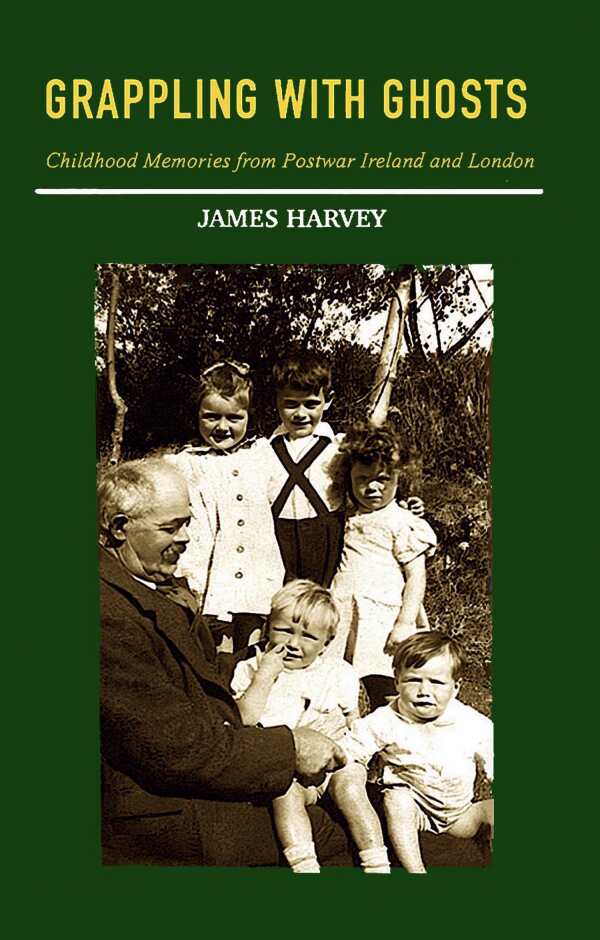Grappling with Ghosts
Childhood Memories from Postward Ireland and London
Told from a child émigré’s perspective, Grappling with Ghosts is a timely memoir about international displacement.
James Harvey’s insightful memoir Grappling with Ghosts is about his nomadic, chaotic childhood and the heartbreak of mass emigration in twentieth-century Ireland.
The book includes poignant memories from Harvey’s postwar childhood in scenic, poverty-stricken Donegal and bombed-out London. Indeed, Harvey and his five siblings were often separated, compelled to move back and forth over the border because of family troubles. These dislocations are presented, in part, as symptoms of England’s colonial policies; Harvey’s childhood anecdotes are punctuated by paragraphs of cultural criticism and Irish history, illustrating the factors that led to mass Irish emigration in the 1950s.
The book’s historical explorations draw on primary sources, including church records, as well as statistical analyses. It notes that few homes had electricity, running water, or indoor plumbing, and that without jobs, resources, or expectations for the future to sustain them, hundreds of thousands of Irish people felt compelled to leave, most going to England and the US. These emigrations were so common, the book says, that send-offs were called “American wakes.” The book also decries the widespread misogyny of the era and the Catholic Church’s “obsession with sexuality”; it attributes institutional issues of sexual abuse and child trafficking to the latter, while also praising those within the Church who lobbied for childhood education and community modernization.
However—while a hint is dropped at the beginning of the book that Harvey’s father fell to violent alcoholism and that his family fell with him—the book’s potential unifying thread appears and disappears, as if the childhood narrator had to look away from the pain of his experiences except when outrageous events required mention of his father’s illness. Without this throughline, the connections between the anecdotes are sometimes quite loose. Further, the book’s tone varies in time with its perspective switches: Its childhood scenes are narrated from a child’s perspective, while its historical and cultural critiques are written in a mature, professional voice, backed by solid evidence. It is only in the afterword, where Harvey touches on some of the challenges of his adult life, that these two perspectives are brought fully together.
Still, the prose is both intelligent and accessible, evincing love for Ireland in palpable language, as with descriptions of the “buttery light” of oil lamps on a Donegal evening. The Irish landscape is also portrayed as a place of “great healing peace,” in particular when juxtaposed to whirlwinds of alcohol-fueled chaos in London. The excitement and opportunities that Harvey’s family experienced in London are also described with appreciative detail.
Grappling with Ghosts is an affecting memoir about a childhood spent stretched between cool, green rural Ireland and postwar England.
Reviewed by
Michele Sharpe
Disclosure: This article is not an endorsement, but a review. The publisher of this book provided free copies of the book and paid a small fee to have their book reviewed by a professional reviewer. Foreword Reviews and Clarion Reviews make no guarantee that the publisher will receive a positive review. Foreword Magazine, Inc. is disclosing this in accordance with the Federal Trade Commission’s 16 CFR, Part 255.

